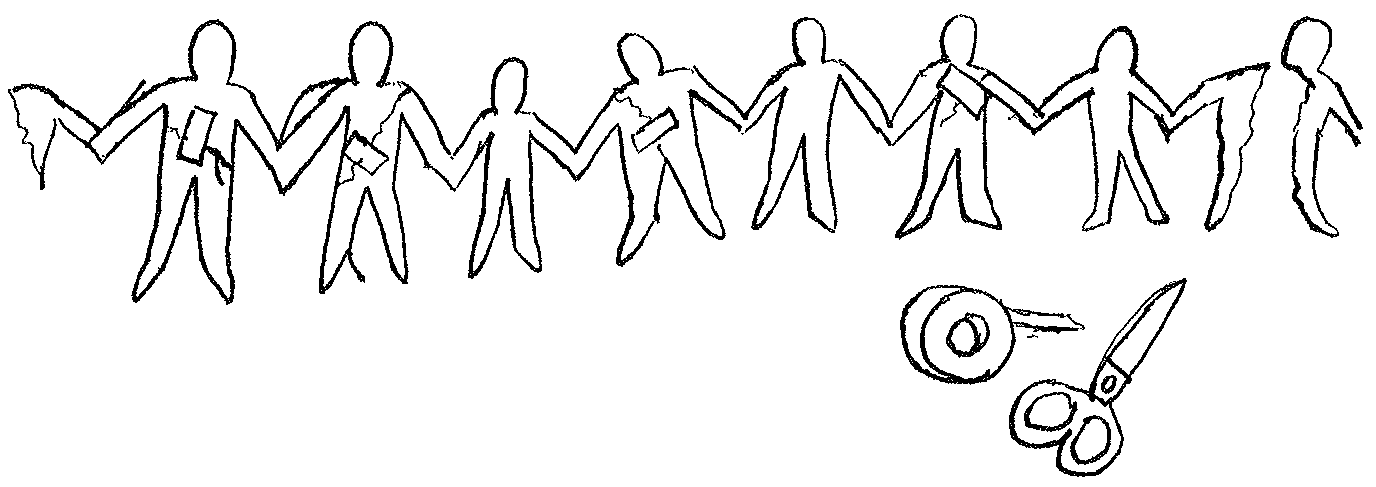My hometown newspaper is all about community. Today, I read about the “deaf community,” the “homeless community,” and the “LGBTQ+ community.” There was even something about the “chief-data-officer community.” Sam Harris, in a recent episode of his podcast Making Sense, refers to the “firefighting community.” When, and why, did people start talking like this? When did the notion of community become so nebulous?
The 18th century, it turns out, and possibly earlier. According to the Oxford English Dictionary, this term has long been “applied to those members of a civil community, religion, or pursuit, common to them, but not shared by those among whom they live.” So an etymological argument must fail, but there is nevertheless a new way we talk about communities that is common to both the professional-managerial class and the woke commissars.
Post-liberal writers have argued persuasively that a gradual decline in our civilized order is built into the very logic of liberalism. The continuous liberation of the individual from constraints that hamper maximum fulfillment of personal autonomy necessarily means destroying the traditions and inherited wisdom that help society function.
The new concept of community, spread through media organs, public authorities, and corporate p.r., is an insidious vehicle for operationalizing this decline in standards in public life. To be labeled a community is to be conferred an air of legitimacy. Consistent with liberalism’s elimination of social constraints, practical limitations on what may be considered a “community” are reduced to almost nothing.
Drug users are the “substance-use community.” Pedophiles are, in some quarters, the “minor-attracted-persons community.” We don’t yet have the “terrorist community,” but maybe one day. I suspect we are only a few months away from reading about the “shoplifting community.” Sometimes this formulation reaches comic levels of awkwardness. Consider one we heard a lot about recently in light of the monkeypox virus: the “men-who-have-sex-with-men community.” A moniker this bizarre must be tiptoeing around something.
We could just talk about deaf people, the homeless, chief data officers (whatever that means), firefighters, and such. (Unraveling an amalgamation like LGBTQ+ is a little harder, but that is the whole point of the term.) Tacking on “community” takes the edge off. It anesthetizes. It’s less likely to be perceived as judgmental. It shifts the discussion to a safer place, one step removed from the thing itself. But the move to play it safe sets the stage for a counterreaction that accumulates over time. This muffled and indirect jargon begets a deep human revulsion at our failure to grapple with the real in public life.
Donald Trump was frequently criticized for “saying the quiet part out loud,” but doing so is one of the secrets of his success. He didn’t wrap things up in language nobody uses in real life. Remember how jarring it was to hear him talk about “the Hispanics” and “the evangelicals.” Consider his boast that “I love the poorly educated!” (The elite horror at this last utterance was telling. After all, shouldn’t we love the poorly educated, as we love all our neighbors? No, we surmise. We must hate and pity them.)
The “international community” predated all of the new communities identified in recent years. None other than Noam Chomsky recognized the essentially propagandistic quality of the term decades ago. It was used to describe whatever the United States and its allies favored.
The recent proliferation of community identities is doubtless aided and even created by online social-networking platforms and forums, which enable one to filter down one’s “community” to whatever subgroups one would like to interact with. Those who are accustomed to this excess of choice struggle to interact in the non-virtual world.
“The antidote to bespoke community is actual community ... rooted in geography.”
The antidote to bespoke community is actual community in a more ancient sense—the kind that is firmly rooted in geography. It takes the form of community organizations, religious organizations, neighborhood associations, or labor-union locals. People may choose where they live, within the constraints of their own circumstances. But they can’t choose all the other people who also live there, or exclude those they dislike from the definition of community itself.
Geographic community is one that isn’t entirely chosen by the individual. Circumcision and baptism are pathways to similarly unchosen communities: the Jewish people, the Catholic Church. This may explain the contemporary interest in redefining community by affinity and personal characteristics. It permits us to make community itself something one can define every element of. It permits a personal rejection of all obligations not freely chosen. Real community, on the other hand, plunges us into the ways in which we are bound up together, whether we like it or not.
